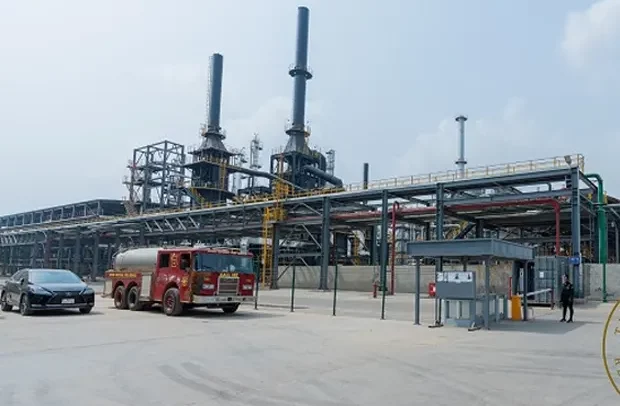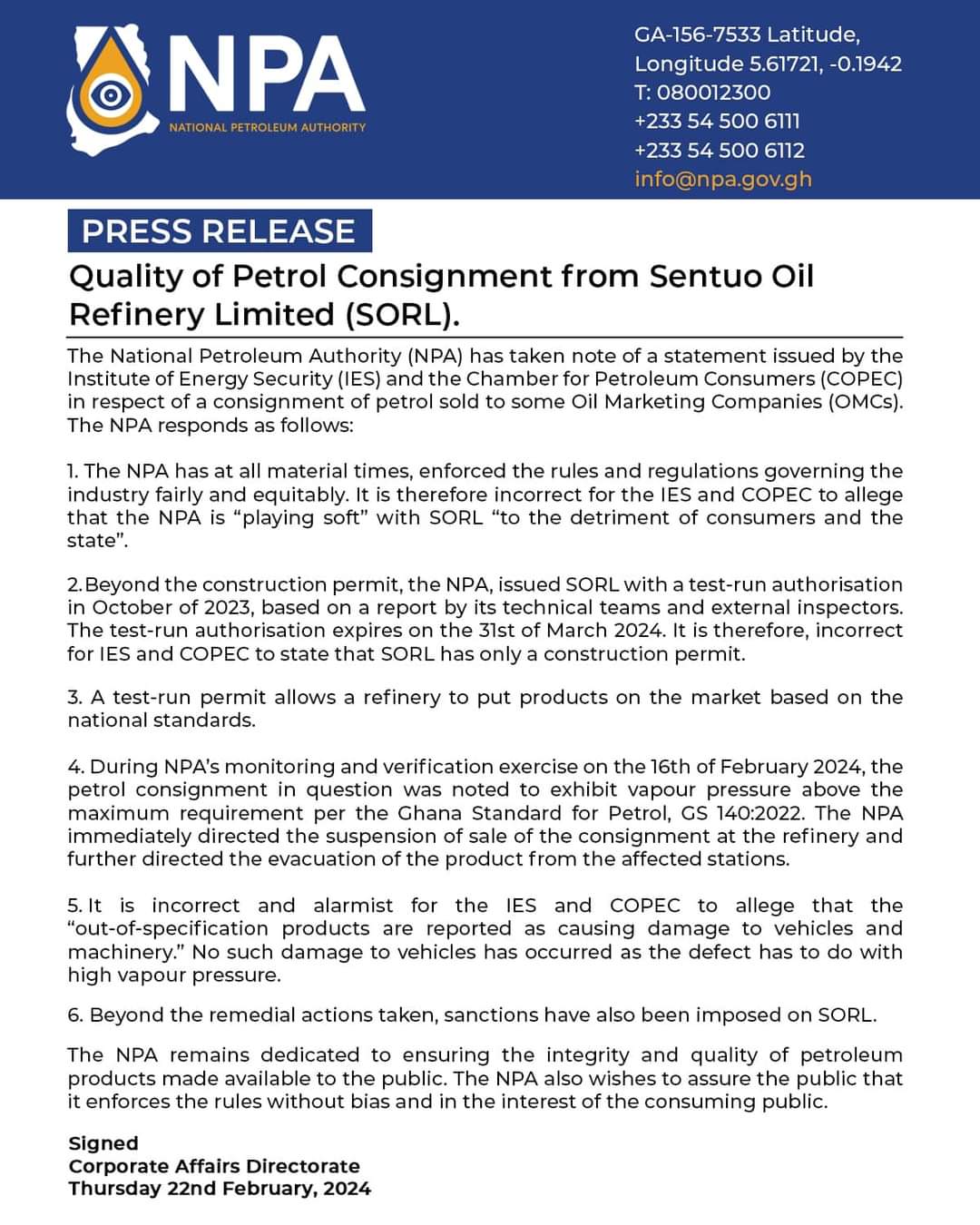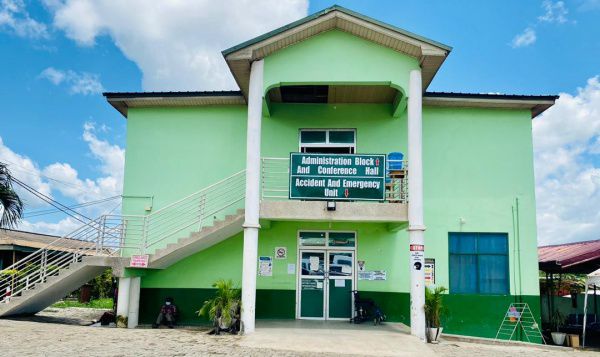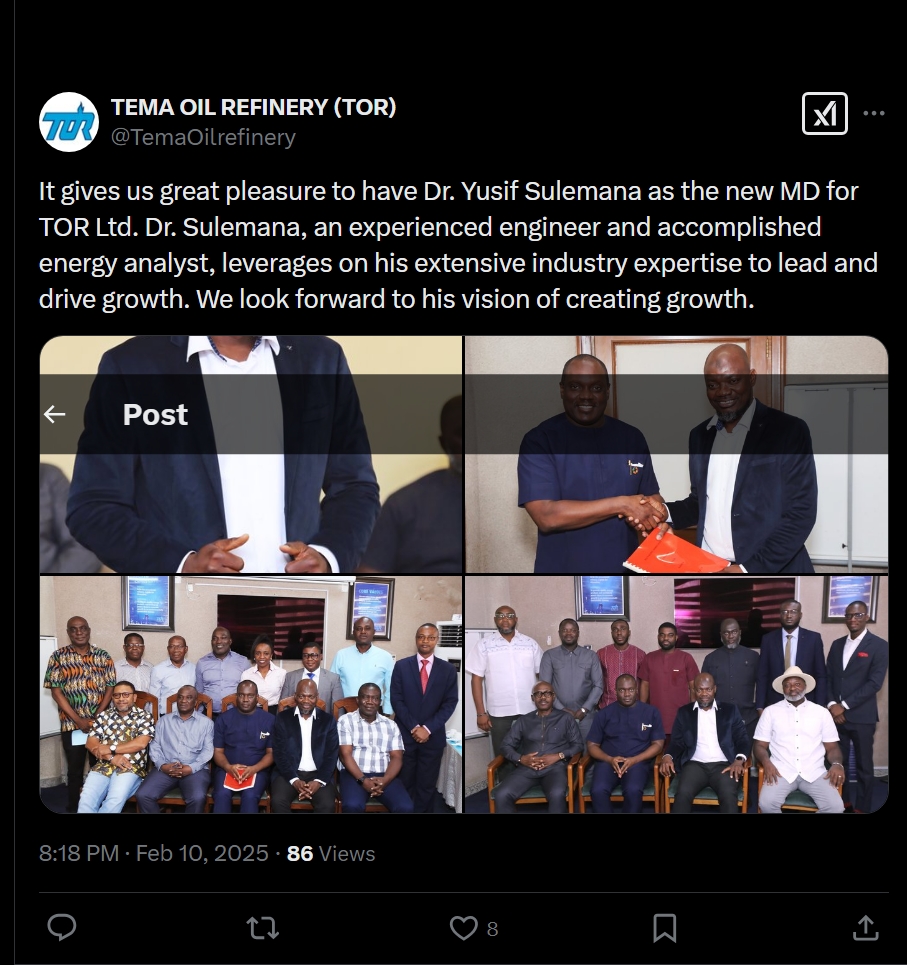
By Samuel Lartey(Prof)
The Government of Ghana has announced a strategic initiative to reassess the operations of the Tema Oil Refinery (TOR) as part of a broader effort to revamp the facility.
This plan prioritizes Ghanaian participation and aligns with the country’s local content policy, which is aimed at fostering indigenous ownership in key economic sectors, increasing employment levels, and enhancing national capacity in the petroleum industry.
This initiative is a pivotal moment in Ghana’s economic trajectory, as it has the potential to significantly impact the energy sector, financial growth, and broader social development.
Historical Context: Ghana’s Energy, Oil, and Gas Sector
Ghana’s engagement in the energy and petroleum sector dates back to the establishment of TOR in 1963. Initially designed as a hydroskimming plant with a capacity of 28,000 barrels per stream day (bpsd), TOR was later upgraded to 45,000 bpsd, reinforcing its role as a key player in the country’s energy industry. Over the decades, the refinery has faced several operational and financial challenges, including maintenance issues, inefficiencies, and financial mismanagement, which have impeded its full potential.
The discovery of oil in commercial quantities in 2007 at the Jubilee Field further shifted Ghana’s energy landscape. This milestone was expected to position Ghana as a major player in Africa’s oil and gas industry.
However, despite this significant find, the country has struggled with refining its crude domestically due to operational bottlenecks at TOR, leading to a heavy reliance on imported petroleum products. The reassessment of TOR’s operations seeks to address these inefficiencies by encouraging local participation and securing sustainable economic gains.
Local Content Policy and Ghanaian Economic Growth
Ghana’s local content policy is designed to maximize indigenous participation in key economic sectors, ensuring that Ghanaians benefit directly from the country’s natural resources. By emphasizing local involvement in TOR’s restructuring, the government seeks to:
Empower local businesses and entrepreneurs by creating opportunities in the oil and gas value chain.
Increase employment levels across various sectors, from skilled refinery technicians to supply chain managers and local service providers.
Enhance national capacity by fostering knowledge transfer, technological development, and industrial expertise among Ghanaians.
As of 2022, Ghana’s unemployment rate stood at approximately 13.4%, with youth unemployment being a pressing concern. The revamping of TOR, backed by a strong local content agenda, is expected to generate thousands of jobs across the public and private sectors, thereby reducing unemployment and improving livelihoods.
Impacts on Public Sector Operations and Businesses
The revitalization of TOR will have significant ramifications for public sector operations, large and medium-scale businesses, as well as small and micro enterprises. Some key impacts include:
Public Sector Efficiency:
The energy sector, including the Ghana National Petroleum Corporation (GNPC) and the National Petroleum Authority (NPA), will experience improved operational efficiencies and revenue generation.
Government initiatives, such as the One District, One Factory (1D1F) policy, will benefit from reliable fuel supply and cost reductions in industrial production.
Large and Medium Enterprises:
Major industrial players, such as cement manufacturers, mining companies, and transportation businesses, will enjoy reduced operational costs due to the availability of locally refined petroleum products.
Financial institutions will have new investment opportunities in the oil and gas industry, increasing liquidity in the sector.
Small Businesses and Entrepreneurs:
Local businesses involved in logistics, transportation, and petroleum retailing will have expanded market opportunities.
Technical training institutions and vocational centers can align their curricula with the industry’s evolving needs, thereby creating a skilled workforce.
Energy Sustainability, Financial, and Social Growth
A functional and efficiently managed TOR will be instrumental in ensuring energy sustainability in Ghana. By reducing reliance on imported refined products, the country can stabilize fuel prices, mitigate foreign exchange pressures, and strengthen its trade balance.
Financially, TOR’s revitalization is expected to contribute significantly to GDP growth. Ghana’s petroleum sector currently accounts for approximately 7% of GDP, and with improved refinery operations, this contribution could rise to over 10% within the next five years. Moreover, efficient refinery operations will minimize fiscal losses associated with importing petroleum products, potentially saving the economy millions of dollars annually.
On a social level, enhanced petroleum refining capabilities will lead to stable fuel prices, reducing inflationary pressures on transport and goods pricing. Additionally, the increased employment opportunities will uplift many Ghanaian households, contributing to overall economic welfare.
Enhancing Government Programs and National Economic Initiatives
The government’s initiative to revamp TOR fits seamlessly into national development programs, including:
Ghana Beyond Aid:
Strengthening indigenous capacity in the petroleum industry aligns with the vision of reducing dependency on foreign aid and fostering self-sufficiency.
Industrialization Drive:
A robust petroleum refining sector will support the manufacturing industry by ensuring stable and affordable fuel supply.
Green Energy Transition:
While focusing on refinery efficiency, Ghana can also integrate cleaner energy solutions, such as refining biofuels and investing in gas-to-power initiatives.
Conclusion
The Government of Ghana’s decision to reassess TOR’s operations marks a crucial step towards economic resilience and self-reliance. By prioritizing local participation, empowering indigenous businesses, and aligning with broader economic sustainability goals, this initiative will have far-reaching effects on employment, industrialization, and national energy security.
However, for this strategy to be successful, there must be a well-structured implementation plan, strategic partnerships with private investors, and stringent regulatory oversight to ensure transparency and efficiency. With the right approach, TOR can be transformed into a model refinery that supports national development and positions Ghana as a formidable player in the global petroleum industry.
The future of Ghana’s energy sector is bright, and with this renewed focus on local content and economic sustainability, the country is on a promising path toward long-term prosperity.
The post Revamping the Tema Oil Refinery appeared first on The Business & Financial Times.
Read Full Story


















Facebook
Twitter
Pinterest
Instagram
Google+
YouTube
LinkedIn
RSS